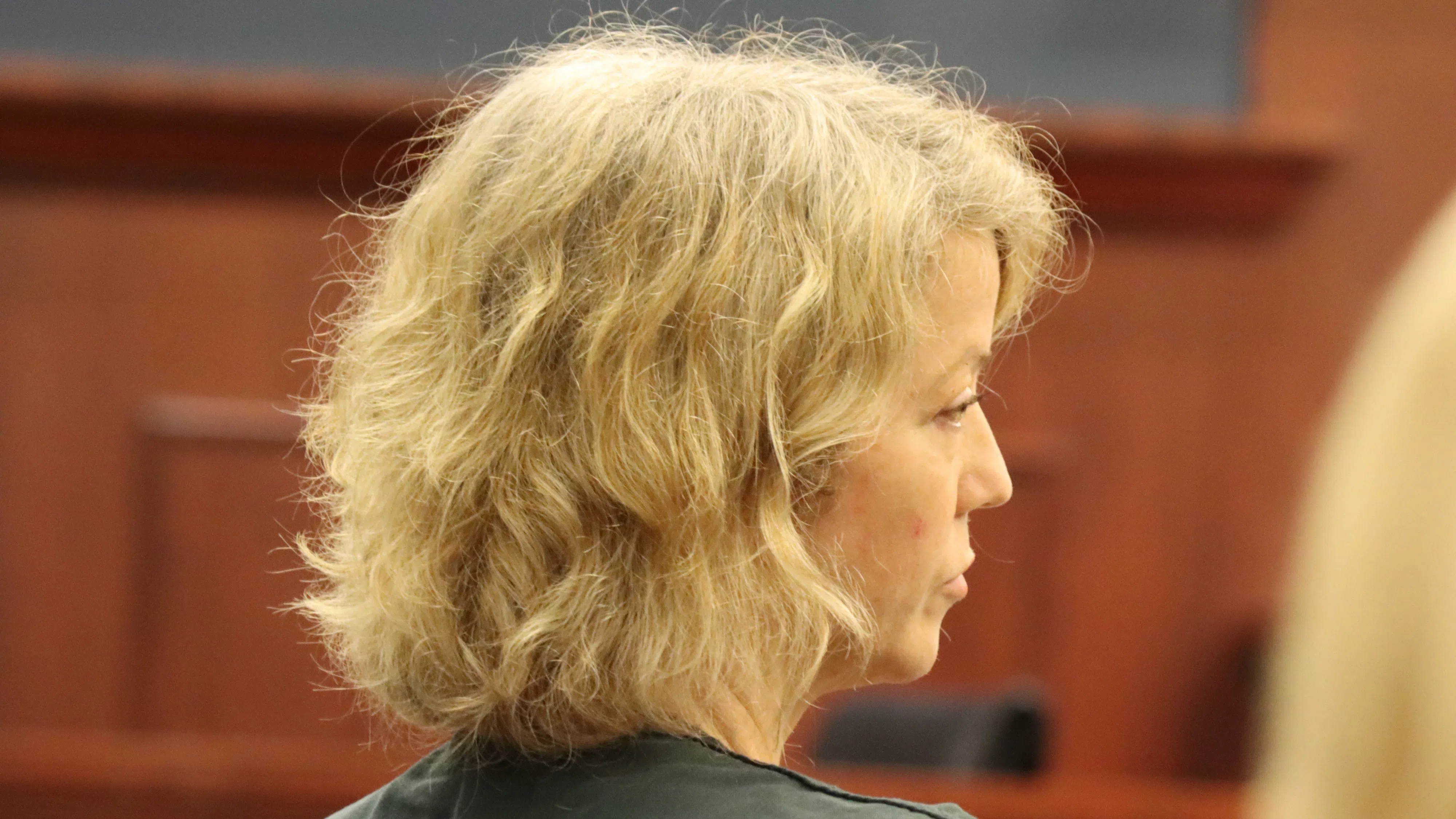By MELINDA J. OVERSTREET
for Glasgow News 1
After a hearing of roughly 90 minutes Friday, Barren Circuit Judge John T. Alexander said he was “committed to making a modification” to the bond for Cheryl Leighanne Bennett, but he didn’t yet know what form that change would take.
Bennett, along with her mother, Donna Cheryl Logsdon, is charged with murder in relation to the July 2022 death of Bennett’s father and Logsdon’s husband, Michael “Mickey” O. Logsdon, who, according to multiple documents, was dependent upon a BiPap – bilevel positive airway pressure – machine to breathe. That machine was allegedly powered off multiple times over the course of the several hours leading up to his death.
The machine itself and access to information from it has been a point of contention for Bennett’s attorney, John Olash, for the past few months, as a variety of delays have occurred preventing his access.
That was to be resolved, at least to some extent, after Friday morning’s hearing, when the courtroom was cleared except for the parties and attorneys directly involved, so that Olash and the latest of the prosecutors assigned to the case could examine it.
Olash, not surprisingly, based on his remarks from the last pretrial conference, also sought to make information recorded and transmitted from the machine the focus of the hearing, but he was cautioned multiple times by Alexander that any of those facts, though potentially relevant to the overall case, had no bearing on whether Bennett’s bond should be adjusted.
Bennett had another pending drug-related case from earlier last year, but originally after her late 2022 arrest on the murder charge, Bennett’s bond was set at $500,000, but it was later reduced for her to only have to actually produce 10 percent of that, and she was on “house arrest,” with an ankle monitor, random drug testing and other conditions.
Logsdon’s bond was also set at $500,000/10 percent, and she has remained out of jail since roughly two weeks after her arrest in January 2023.
In October, it was determined that for the third time last year, Bennett had a drug test that came back positive for methamphetamine. The first time, in April, Alexander had her stay in jail for 30 days before allowing her release. In June, her attorneys and the prosecutors worked out an agreement for her to go to an out-of-state treatment facility, where she stayed for 10 weeks before returning to Kentucky. A third preliminary test took place Oct. 9, with lab results returned a few days later to confirm the presence of methamphetamine, and she was re-arrested on Oct. 13 with the full $500,000 as the bond again.
On Friday, Olash asked his client whether she was in jail at Thanksgiving and Christmas and whether it was her first instance in each case, which she answered in the affirmative. Bennett testified that after she returned from the out-of-state facility, she could not continue with any outpatient treatment due to her house arrest, and she asked for the opportunity to do that should she be released again, because she believed that would help her be more successful with meeting the terms of the bond.
The prosecutor, Blake Chambers, who is the commonwealth’s attorney for the 38th Judicial District, which contains Edmonson, Hancock, Ohio and Butler counties, and was appointed to the case four days prior, asked her questions about how she obtained the drugs she used while on house arrest – whether they were brought to her, whether she violated the terms of the house arrest to go get them, etc.
She told him she “just found them” in an apartment behind the house.
Alexander said later that the fact she was in jail over the holidays really had no bearing, because “the timing is the timing,” but he noted the length of time she’s been back there.
The judge acknowledged the slow pace with which the case has moved, and he said that each delay within itself was understandable, but could understand how, taken as a whole, they could feel troublesome. He voiced optimism the case could move forward better now.
Alexander said that in his position, he needs to know that the point has been made that when bond conditions are set, they need to be followed for the defendant to be able to remain out of jail, and he also has to find “that middle path” between punishing the violation of the bond terms and punishing a person for an addiction, which is a public health problem.
He said that one of the things to consider is the defendant’s “reasonably anticipated behavior,” and past performance hadn’t been “real ideal,” but he thought that, with some tweaks, he may be able to find an option with which he could be comfortable in that regard.
He said it’s incumbent upon him to review all the information presented to him, and he would do that and provide a decision either later Friday or early next week.
Acknowledging that Olash was waiting for some additional information regarding the BiPap that he should have within 30 days and then would need some time to “chew on it,” he suggested a new pretrial conference be set after that.
Ultimately, the parties agreed to 9 a.m. May 2.

Comments